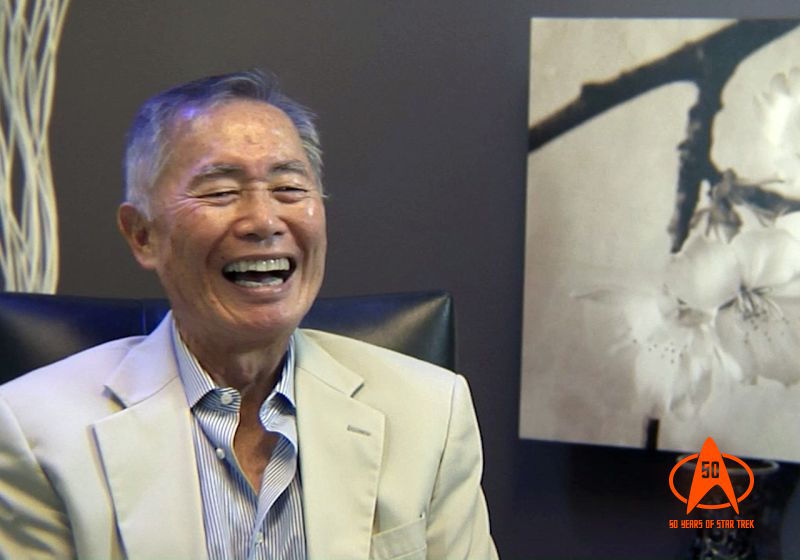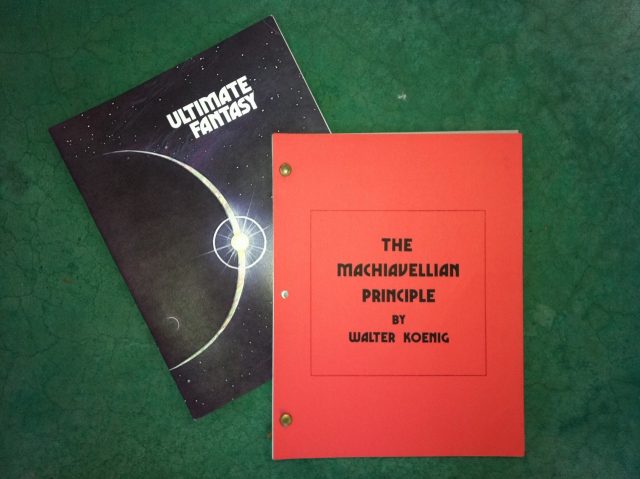
Even by modern convention standards, it sounds crazy. It wasn't just a Star Trek convention. Not just a Star Trek convention with nearly the entire original series cast present, either. It was a Star Trek convention with a "multi-media extravaganza," a laser show, and live musical performances all on a custom-made, constantly slowly rotating stage built like the Starfleet uniform badge insignia with a captain’s chair right in the middle.
As Star Trek II: The Wrath of Khan was being released, that's exactly what was planned for "Ultimate Fantasy" in Houston, Texas, at the Shamrock Hilton Convention Center and the adjacent Summit Arena in June 1982. The show was advertised all over Starlog and TV Guide. Huge billboards went up across the Houston area, and some organizers really believed that fans would come from overseas to see this four-hour live show.
There was only one problem: no one came.
In a venue that could hold at least 17,000 fans, which had been booked for three performances over a weekend, tickets sold to less than 10 percent of capacity. When relatively few fans showed up, the Shamrock Hilton demanded that all vendors pay their fair share in full, lest they be shut down early. Even the stage hands working on the performance nearly had some of their gear seized in the middle of a show. In short, "Ultimate Fantasy" collapsed miserably. Over time it became known as "The Con of Wrath"—it also became legendary among Trek fans.

Riding the wave
A Star Trek fan in Norman, Oklahoma, Larry Nemecek, took his first road trip 430 miles south to Houston for the show. "I didn’t know at the time, but it was a glorious failure—it was supposed to be the biggest rock show for Trek," he told Ars. Nemecek has since grown up to become a well-known Star Trek archivist who runs a paid fan website called "Portal 47." And now he's making a film about that epic incident he witnessed. His documentary, The Con of Wrath, will even include interviews with the cast and crew who performed that infamous weekend.
It’s important to remember the context within which Ultimate Fantasy was conceived. By the early 1980s, Star Trek was on the rise again. While TOS ended in 1969, it gained new fans in the 1970s through syndication. In 1972, the first Star Trek convention was held in New York City. Four years later, a letter-writing campaign convinced NASA to name the first space shuttle Enterprise. By 1979, Star Trek: The Motion Picture was released.
"The sci-fi boom is on," Nemecek recalled. "The guy in the middle of that was dreaming of the biggest show ever." That man was Jerry Wilhite, a Houstonian who had been involved in numerous comics conventions since the 1960s. According to the Houston Press, as the convention scene began to wane in the 1970s, Wilhite wanted to take the local scene to a new level. (Wilhite is reportedly still living in the Houston area but is in poor health and could not talk to Ars for this article.)
As such, Wilhite dreamt up the Ultimate Fantasy experience. And to kick things up a notch, he also orchestrated two-person package deals (which included convention access and hotel rooms) for $425 (or $1,060 in 2016 dollars). Individual floor seats started at $75 ($187 in 2016 dollars) and general admission at $30 ($75 in 2016 dollars).

According to an article in the Houston Chronicle from June 27, 1982, "many fans arrived in Houston to find they owed hotel bills that should have been included in the price of the tickets." The two top-billed actors, William Shatner and DeForest Kelley, only received 60 percent of their fee, according to the Chronicle. "Minor performers received little, if any, of their money," the paper reported.
Speaking through an unnamed agent, Kelley declined to speak to the Chronicle. The actor only said that he "didn’t want to get involved. Any comment should come through the producers of the show. They knew what was going on."
reader comments
56